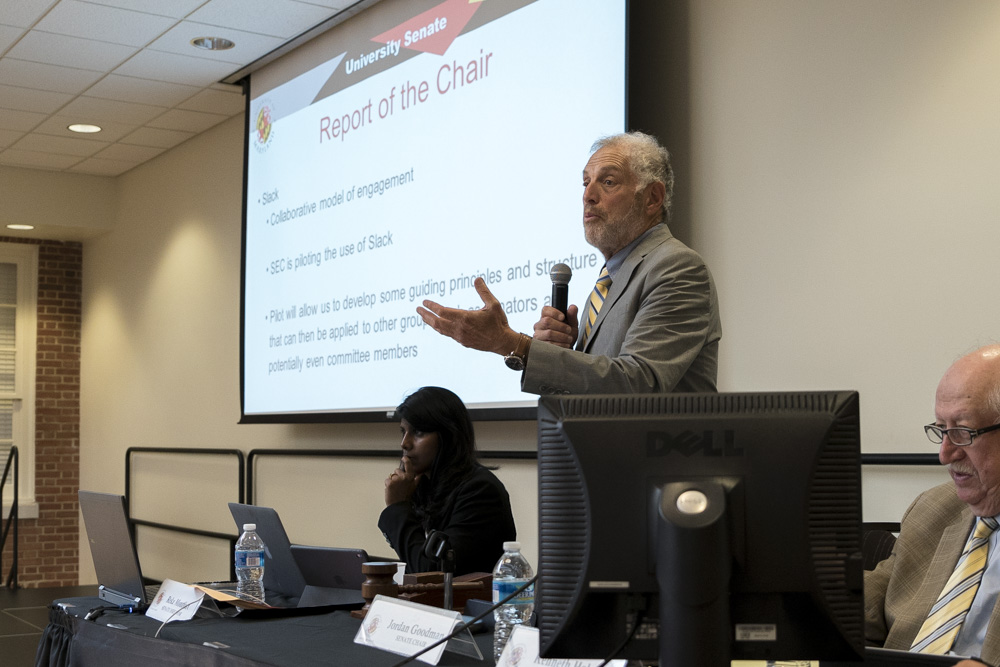The Senate Executive Committee voted Wednesday to move four proposals for new academic programs in the engineering, public health and business schools forward next month to the University Senate.
The proposals would create a master’s degree and doctoral program in environmental health sciences, a master’s degree in quantitative finance and a certificate program in computer networking. The SEC unanimously agreed to place all four proposals on the agenda for a full body vote at the University Senate meeting on Nov. 2.
If the senate approves the new doctorate proposal, it will be the eighth doctorate program the public health school offers, according to the school’s website.
Andrew Harris, programs, curricula and courses committee chairman, presented the proposals and his committee’s analyses on each new program to the SEC. The new environmental health sciences doctoral program would provide a more general program than the current one in toxicology, Harris said.
Toxicology focuses on the role of poisons as related to health. The proposed master’s degree program would provide an alternative route for graduate students that end up deciding not to seek a doctoral degree in the field, he said.
“Toxicology is a subset of environmental health,” Harris said. “[This would be] a broader doctoral degree program that better aligns with the field, with student interests [and] with peer institutions.”
The public health school anticipates about 15 students to be in the new doctorate program — some of them transitioning out of the current toxicology specialization, he said. The school could begin offering the program if it is approved by the senate and signed off by university President Wallace Loh.
One committee member noted that the public health school’s website appeared to incorrectly list the toxicology doctorate degree as toxicology and environmental health. The website’s wording is “not necessarily what is approved by the state,” and will be followed up on, said Betsy Beise, associate provost for academic planning and programs.
The master’s degree program on the table for the business school — a master’s degree in quantitative finance — would provide a more specific option compared to the current master’s degree in finance offered by the business school, Harris said.
“Students will develop a rigorous understanding of how to develop and apply mathematical models to financial decision-making,” Harris said.
The business school expects some students currently in the finance master’s degree program to transition to this new specialization if approved. SEC Chairman Jordan Goodman asked at Thursday’s meeting if this program includes a path for mathematics and physics majors to study business at the graduate level.
“The answer is not yet, but that is one of the reasons for doing this,” Beise said.
As for the computer networking specialization, it would be offered as a 12-credit certificate for students enrolled in the master’s degree program for science telecommunications.
“It is a way to provide people who are already getting a master’s degree with additional credentials,” Harris said. “… There seems to be a feeling these would be valuable in either attracting students to join the program or to students already in the program.”
After voting to move the proposals to the senate floor, the committee also agreed to have Department of Transportation Services Executive Director David Allen and Title IX Officer Catherine Carroll present at the senate meeting on Nov. 2.
Allen will discuss and answer questions about the future of parking on this campus. Carroll will finish a presentation on her office’s need for additional resources — a talk she started at the last senate meeting Oct. 6 before the meeting ran out of time.
The SEC went into closed session at the end of the meeting to further discuss a meeting they had with Loh. Goodman said that meeting with Loh was confidential and could not be discussed openly.



